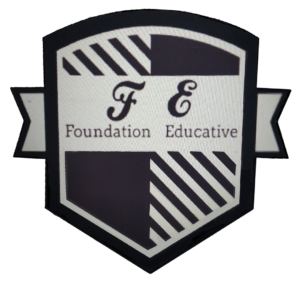Vision and Mission
The foundation was set up as a place where faculty could gather to develop innovative teaching methods, to better deliver the course content, so that student learning could be improved.
The vision soon evolved as:
1. Create and deliver industry relevant courses, incorporating the latest research and case studies in the course content.
2. Develop and embed innovative teaching methods into the courses to improve student interest and learning.
3. Create and deliver courses in accordance with the latest international guidelines ( such as AACSB-International, 2020, Standard 5, pg. 43, updated July, 2022 and AICTE-Student Learning Assessment Standard (APPENDIX-6,6.1 pg 42)) with “Assurance of learning” standards built into the courses and the evaluation system.
What We Do
Course Development and Delivery
Members of the foundation are involved in creating newer teaching aids like simulations, games and other methods like ‘active’ cases, debated and mini-workshops. This work on research and development of the course content and pedagogy is ongoing. Courses are developed in line with the latest international standards. (AACSB-International, 2020, Standard 5, pg. 43, updated July, 2022)
Course content is updated with latest research and case studies. New content is generated in line with research and current company practices. In management, latest research, management practices and case studies make the content meaningful and contextual to the students.
Course design has been done using the methodology recommended by the best accreditation agencies like the AACSB. The impact of the particular course on the ‘program’ is charted. The course-program impact matrix is listed in each course outline. The latest international guidelines (AACSB-International, 2020, Standard 5, pg. 43, updated July, 2022) on “Assurance of Learning Standards” are followed. Course design and pedagogy design is done for ‘assuring student learning’. The ‘evaluation’ of the learning is embedded in direct and indirect evaluation tools which accompany the course delivery. This evaluation then leads to redesign of the content and pedagogy of the course, thus completing the feedback loop.
Development of Newer Methods of Teaching
The Foundation regularly works on developing newer methods for delivery of the course content to the students so that their learning can be enhanced. These methods include :
Games and Simulations
Debates
Projects
Mini-workshops
Scene Enactments/ Stage Role Plays
‘Active’ case discussions / Case discussions
Research Based ‘seminar modules’
Mini-Workshops of 8 -12 hours allows the introduction of the student to large problems, and to guide his search for solution to these large problems.
Games and Simulations allow for the demonstration of concepts from the field with each Simulation illustrating a specific concept – carefully woven into the subject / curriculum. Games are pen and paper based, and online games with simulations and animation. Some of these games are played online against students from other international schools.
Active case discussions involve bringing a senior manager of the company about which the case is written. This offers the students a unique perspective as to the approach and framing of the problem by senior managers.
Debates are structured around relevant pre-selected topics with 65% of the debate material given, and the student group is asked to use internet and the library to develop the debates. The learning for the students being that there may be two alternate viewpoints to an issue, each with valid arguments to support the viewpoint.
Projects allow for a more ‘creative learning’ by the students where the concepts of the course are implemented for a problem of the students’ choosing. This choice is based on a discussion with the course instructor, where both the problem chosen and outcome desired are decided.
Scene enactments and role plays are used to elevate the thinking and analysis skills of the students where they put themselves in the shoes of the ‘managers’ of the companies. They then confront real life constraints and expectations to solve the chosen problems.
Subjects where the content and context are fast changing, benefit when the ‘research seminar’ method is chosen for teaching. The latest knowledge from research papers is brought to bear on the issues and proposed solutions which form the basis of the course content.
Faculty Development Programs
The Foundation also conducts faculty training programs on a regular basis. The business school can contact the Foundation for conducting customized faculty training programs if so required for faculty upgradation.

